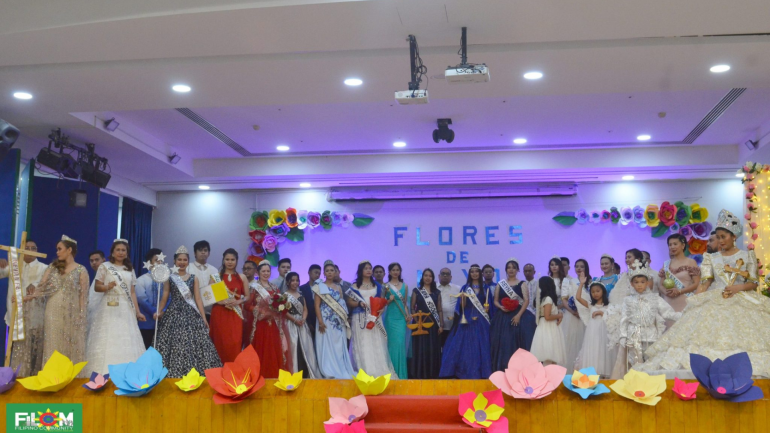Philippines diocese issues guidelines for celebrating Santacruzan, Flores de May

The diocesan chancery of Borongan in Eastern Samar province issued guidelines in a circular earlier this year on the observance of two festivals in the month of May, which are the Santacruzan and Flores de Mayo.
Signed by Most Rev. Crispin Varquez, DD, Bishop of Borongan and Rev. Fr. Neil Tenefrancia, chancellor, it said that “there is an on-going and pervasive confusion about the Santacruzan and Flores de Mayo so that their chronological import and theological significance for the faithful is not properly understood.”
The statement clarified that “the Santacruzan is a festival in commemoration of the finding of the True Cross by St. Helena and is, thus, properly a Christological celebration, not a Marian one, while “the Flores de Mayo is a feast in honor of the Virgin Mary, the Queen of all the Beautiful Flowers of May and is, this, properly a Mariological celebration.”
“The practice of conjoining them in a single celebration and procession is, therefore, historically and theologically incongruous and creates confusion among the faithful, aside from depriving them of the opportunity to better appreciate the unique significance of each celebration,” it said.
The circular added that “Santacruzan is to be fittingly celebrated on its proper feast day, May 3, or other favorable dates during the first half of May, while the Flores de Mayo celebration, minus the details and trappings associated with the Santacruzan, is to be held in the second half or at the end of May.”
“To realize this, extensive catechesis is to be devised by the parish pastors at their own discretion. In case the implementation of the said pastoral interventions this year will produce great inconvenience to the faithful, it can be postponed until next year's celebration,” said the circular.
"Popular piety can neither be ignored nor treated with indifference or disrespect because of its richness and because, in itself, it represents a religious attitude in relation to God. However, it has to be continually evangelized, so that the faith which it expresses may become more mature and authentic" (Pope John Paul II, Apostolic Letter Vicesimus Quintus Annus, 4.12.1988), 18, the statement said.
Radio Veritas Asia (RVA), a media platform of the Catholic Church, aims to share Christ. RVA started in 1969 as a continental Catholic radio station to serve Asian countries in their respective local language, thus earning the tag “the Voice of Asian Christianity.” Responding to the emerging context, RVA embraced media platforms to connect with the global Asian audience via its 21 language websites and various social media platforms.











